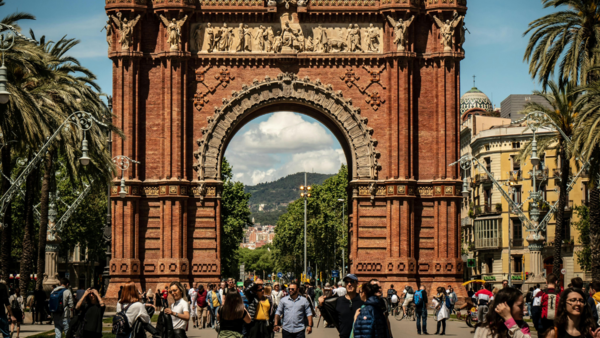As cities around the world grapple with the challenges of overtourism, the concept of a tourist tax is gaining traction. Recently, Edinburg announced a mandatory tourist tax starting from July next year. This move puts the city in line with other destinations which have already adopted similar measures. But as more places turn to tourist taxes to fund local initiatives, a key question emerges: will this trend reshape the way we travel?

Why tourist taxes are being introduced
Tourist taxes aren’t a new concept. For years, many cities like Amsterdam, Venice, Bali, and more have charged visitors a small fee, using the funds to manage the pressures of overtourism and maintain the city’s infrastructure.
‘A necessary step for many destinations’
The primary goal of these levies is to mitigate the negative effects of tourism. And, for many destinations, it’s a necessary step, say travel operators. “Overtourism has strained resources, driven up living costs for locals, and eroded cultural sites, in India and abroad too. Tourist taxes are important to address these issues by making visitors contribute directly to the places they visit,” shares Pritesh Mishra, founder of a travel agency based in Mumbai.
A boon or a burden for popular tourist spots?
“While the concept of tourist taxes seems beneficial, their effectiveness varies. Some places are still trying to manage overcrowding despite having these levies in place,” shares Pritesh. Shivam Dixit, a Pune-based travel curator shares his views on budget-conscious travellers and says, “There’s a risk of deterring budget-conscious tourists, especially in competitive travel markets. Destinations without additional taxes that drive up the cost of a trip may become more appealing to them.”

The traveller’s perspective…
For travellers, the reaction to the impact of tourist taxes remains mixed. “A small nightly fee or departure tax may seem negligible in the context of an overall trip budget. But for budget-conscious travellers, these costs can add up, potentially influencing their choice of destination,” explains Akanksha Sharma, an avid traveller. On the other hand, Raunak Kadam, an eco-conscious traveller who is in favour of tourist taxes, says, “I don’t mind paying a few extra pounds if it means the city I’m visiting is cleaner or the locals benefit from my visit. But I would think twice if the fee seemed excessive or I didn’t see any real improvement.” This sentiment is echoed by many travellers who expect transparency in how their contributions are used.
Some tourist taxes around the world include…
-Venice, Italy: Introduced a €5 “day-tripper tax” to manage overwhelming crowds.
-Amsterdam, Netherlands: Charges 7% of the hotel bill plus €3 per person per night as a city tax.
-Bhutan: Enforces a $200-$250 daily visitor fee, covering accommodation, meals, and cultural tours, under its ‘high-value, low-impact’ policy.
-Japan: The ‘sayonara tax’ adds ¥1,000 to all international departures by plane or ship.
-Manchester, UK: Imposes a £1 per night charge per hotel room, the first of its kind in the UK.
-Barcelona, Spain: Charges up to €4 per night, depending on the type of accommodation and location.
As per reports, Thailand is set to introduce a tourist tax starting in mid-2025, aiming to support its tourism infrastructure and promote sustainable travel. The fee, approximately 300 baht, will apply to international visitors entering by air, while those arriving via land or sea will pay a reduced amount.
In 2024, the UK introduced the Electronic Travel Authorisation (ETA) system, requiring visitors from countries like the US, Australia, Canada, and parts of Europe to apply for entry permission and pay a fee. Starting April 2025, this requirement will extend to eligible travellers from European nations as well.
(As per: https://homeofficemedia.blog.gov.uk/electronic-travel-authorisation-eta-factsheet-january-2025/ )
This post was originally published on here







